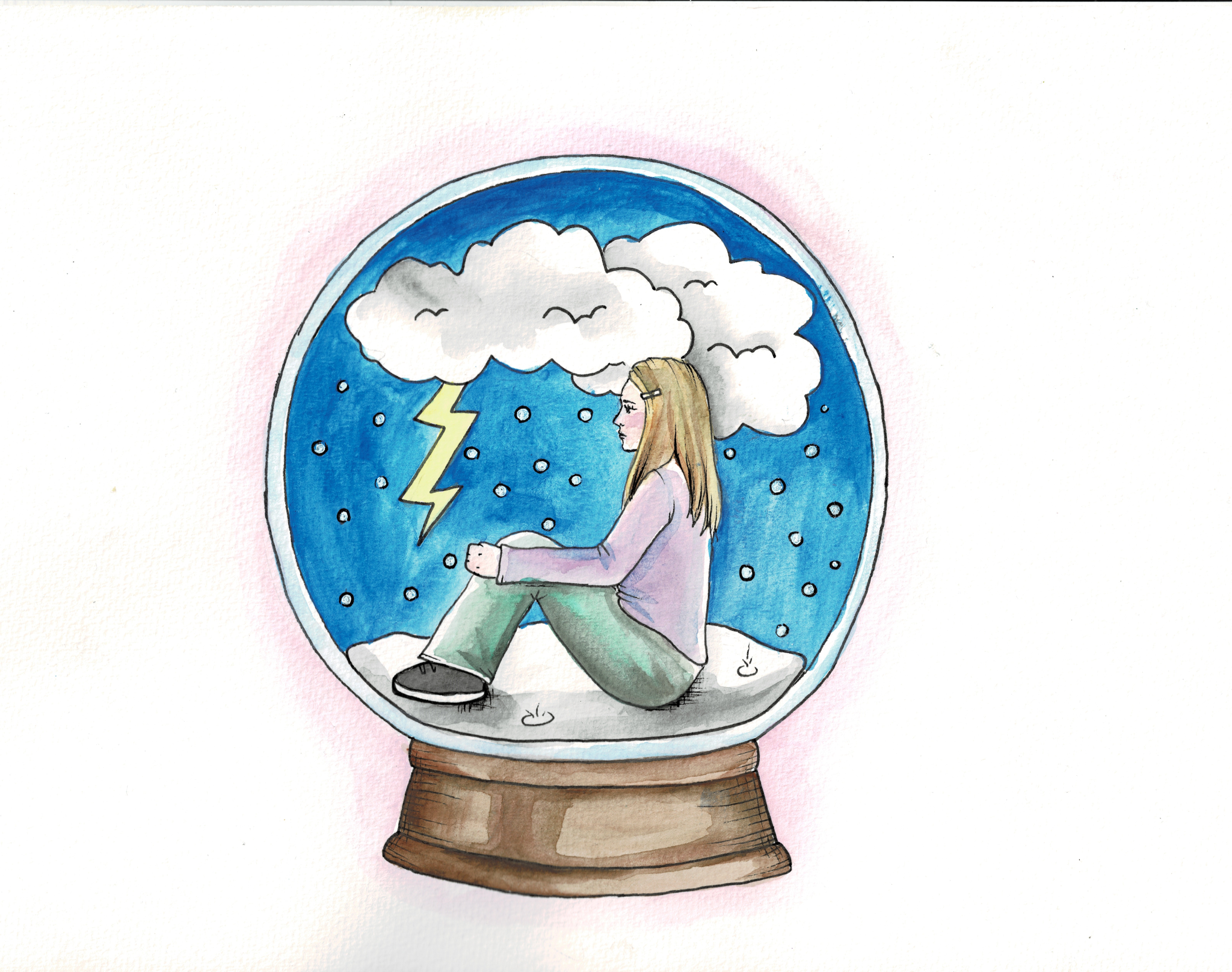Seasonal depression, also commonly known as Seasonal Affective Disorder (SAD), is a form of depression where symptoms appear during specific seasons, typically fall and winter, when days get shorter, and there is less sunlight. Symptoms, nearly identical to non-seasonal depression, include feelings of sadness or hopelessness, irritability, low energy or sleeping issues, loss of interest in hobbies, and thoughts of death or suicide.
While there is no clear data on how common seasonal depression is at Berkeley High School, the Newport Academy reports that teens and young adults are at a significantly higher risk of developing seasonal depression than older adults.
“I think that teens, especially post-pandemic, have a lot of stuff going on these days--there are so many pressures,” said Dr. Larry Miller, a licensed psychologist who has a private practice in Berkeley and is a faculty member at the Wright Institute. Miller has over 25 years of experience working with people of all ages. “They’re getting hit with so many different things, it gets hard to differentiate if it's the seasons or all these other things going on in their lives.” He adds.
According to the National Library of Medicine, seasonal affective disorder is estimated to afflict nearly 10 million Americans, with many more experiencing a more mild version of the mood disorder. Those diagnosed with major depressive disorder are at an even higher risk, at about 10 to 20 percent afflicted.
“The theory behind it is that when you have less daylight, you get less Vitamin D. If you get less Vitamin D, then you’re making less melatonin… that messes up your circadian rhythm,” explained Miller.
Where someone lives significantly affects whether or not they have seasonal depression, as living farther from the equator results in experiencing more intense changes in the seasons. A study by Norman Rosenthal, a psychiatrist who first identified seasonal affective disorder, discovered that while only one and a half percent of those living in Florida experienced seasonal depression, nearly 10 percent of people living farther north in New Hampshire did as well.
“There are places where there’s a lot less light in the wintertime than we have. And they have a lot higher incidence of seasonal affective disorder,” Miller said.
There are several potential treatments for seasonal affective disorder. Light therapy, medication, and psychotherapy have all been shown to help.
“There are these things called light boxes, and people sit in front of it, and it’s not a regular light bulb,” Miller said. “It’s the type of light that’ll get you to produce Vitamin D. So that’s a classic approach, and it really seems to work.” He adds.
The Healthy Minds Club is run by BHS senior Santos Rivera and their friends. The club is a continuation of one created last year. The Healthy Minds club mission is to “Welcome a safe space for people to talk about their mental health and be open with themselves and others.”
“A typical club meeting always includes and starts with a check-in, people just sharing what's on their minds and what's going on for them,” Rivera said. “We have talked about seasonal depression because it definitely is real… I think that it honestly is an issue at BHS, more than people realize.”
The Healthy Minds club meets Monday in the BHS library after school.
Another resource available to students who may be struggling with seasonal affective disorder is the Health Center.
“Some students who come to the Health Center for services have cited signs and symptoms of seasonal depression. Students typically report these kinds of concerns most prominently during the fall and winter months as the light and weather changes,” said Zach Meredith, Mental Health Clinical Supervisor at the Health Center. “The Health Center offers short-term counseling for all students, and these services can be accessed quickly and easily.” He adds.
The Health Center is located in Room 105 of the H Building and is open Monday through Friday.
“If students are experiencing and struggling with seasonal depression or are feeling off in any other way, the Health Center is here to help. Please come and see us!” Meredith said.





